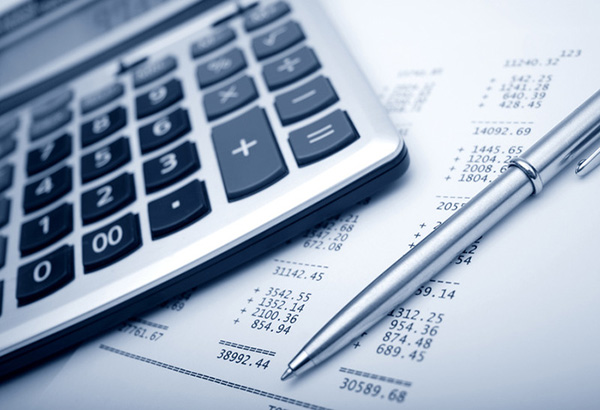Duterte's tax reform plan: Consumers brace as TRAIN passes

The first of five tax reform packages, as embodied in House Bill No. 5636, was approved by the House of Representatives on its final reading on May 31. File photo
Like a fast-moving locomotive, the Philippines’ own version of TRAIN, otherwise known as the Tax Reform for Acceleration and Inclusion, has traveled from the halls of Department of Finance to Congress with no intention of stopping in its tracks. Lest we forget, more trains are set to leave the station.
The first of five tax reform packages, as embodied in House Bill No. 5636, was approved by the House of Representatives on its final reading on May 31. Meanwhile, the Senate has ended the period of interpellations of Senate Bill No. 1592 and will resume deliberations for possible amendments when session resumes in November. The TRAIN bill is a priority measure and accordingly, has been targeted to be signed into law by President Rodrigo Duterte by the end of the year.
In this first package alone, Filipino consumers are now faced with the reality of carrying a bulk of the tax burden. Among the pertinent provisions of the tax reform are the increased level of taxes of primary consumer products such as petroleum and sugar-sweetened beverages.
The first package: A sign of things to come
Under the proposal, oil excise tax rates will be staggered and adjusted gradually in the succeeding years. Diesel and essentials namely processed gas, kerosene, diesel fuel oil, liquefied petroleum gas, asphalt, and bunker fuel oil will increase from P0 in 2017, to P1.75 to P3 in 2018, P3.75 to P5 in 2019 and P6 in 2020. Gas and non-essentials such as lubricating oils and greases, naphtha, regular gasoline, premium gasoline, and aviation turbo jet fuel will increase from P4.35 in 2017, to P6 to P7 in 2018, P8 to P9 in 2019 and P10 in 2020.
As fuel is one of the major components in determining the transportation fare, an increase in fuel cost will directly affect its price. The impact will be most felt by the commuting public as the price hike will affect various modes of transportation such as jeepneys, buses, UVs, tricycles, habal-habal, rail and taxis. Concomitant with the fuel increase would be a surge in the prices in freight, electricity and food.
With the significant rise in prices of commodities, consumers can expect a concomitant surge in inflation rate. Based on the recent data provided by the Philippine Statistics Authority, the country’s annual headline inflation has increased to 3.4 percent in September 2017, one of the highest rates since 2015.
To take just one example, in terms of sugar-sweetened beverages (SSB), the Senate proposes to levy an excise tax amounting to P5 per liter of volume capacity on beverages having purely caloric or calorie-containing sweeteners, except for those using purely coconut sap sugar. It then proposes to levy another tax of P10 per liter of volume capacity on beverages using purely high fructose corn syrup or corn syrup in combination with any other sweetener. In addition, there will be a P3 tax per liter of volume capacity on drinks using purely zero-calorie sweeteners or a mix of caloric and non-caloric sweeteners, except those using purely steviol glycosides. The Senate-proposed excise tax excludes milk, 100 percent natural fruit and vegetable juices, meal replacement beverages, unsweetened tea and coffee.
The House version, on the other hand, provides a two-tiered system where taxes will be levied per liter of volume capacity for drinks containing purely locally produced sugar at P10 and all other sweeteners at P20. The House excise tax excludes milk, 100 percent natural fruit and vegetable juices, meal replacement beverages, and yogurt and fruit flavored yogurt beverages.
Are we targeting our efforts?
While the bills are laudable in their intent to promote a healthy lifestyle for Filipinos by curbing incidents of obesity and diabetes, data from the 2017 State of Food Security and Nutrition in the World by the Food and Agriculture Organization of the United Nations show that the problem is undernutrition, not obesity. In the Philippines, the prevalence of undernutrition in the total population is at 13. 8 percent, which is higher than the prevalence of overweight children at 5 percent and the prevalence of obesity in the adult population at 5.2 percent. Legislative priorities must be realigned to address real issues rather than passing the tax burden to low-income earners, as they are the ones most likely to be affected by this excise tax.
Adding packages on consumers’ shoulders
Given that the proposed tax reform affects consumers in their day-to-day living expenses, taxes on these commodities are burdensome enough as it is. Consumers must not be the ones to bear the tax burden as the responsibility falls on the government to address the leakages in the tax collection.
Government enforcement, by way of tax policy, administration and collection, plays a crucial role in influencing the level of tax revenues in an economy. To cancel out the need for new taxes as proposed in packages two to five of the TRAIN bill, the government shift its focus on correcting problems that render the country less competitive: plugging the leaks and inefficiencies in tax collection and administration will cancel out the need for more taxes.
Dindo Manhit is the president of think tank Stratbase Albert del Rosario Institute, a partner of Philstar.com.
- Latest

























